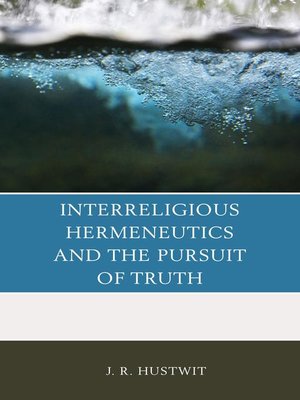
Sign up to save your library
With an OverDrive account, you can save your favorite libraries for at-a-glance information about availability. Find out more about OverDrive accounts.
Find this title in Libby, the library reading app by OverDrive.



Search for a digital library with this title
Title found at these libraries:
| Library Name | Distance |
|---|---|
| Loading... |
Philosophical hermeneutics provides a model of interreligious dialogue that acknowledges the interpretive variability of truth claims while maintaining their relation to a preinterpretive reality. The dialectic and tensive structure of philosophical hermeneutics directly parallels the tension between the diversity of belief and the ultimacy of the sacred. By placing philosophers like Gadamer, Ricoeur, Peirce, and Whitehead in conversation, J. R. Hustwit describes religious truth claims as coconstituted by the planes of linguistic convention and uninterpreted otherness. Only when we recognize that religious claims emerge from a dalliance back and forth across the limits of the understanding can we appreciate the engagement between religions. In terms of dialogue, this approach treats religious truth claims as tentative hypotheses, but hypotheses that are frequently commensurable and rationally contestable. Interreligious dialogue goes beyond facilitating bonhomie or negotiating tolerance; dialogue can and should be a disciplined space for rationally adjudicating claims about what lies beyond the limits of human understanding.






